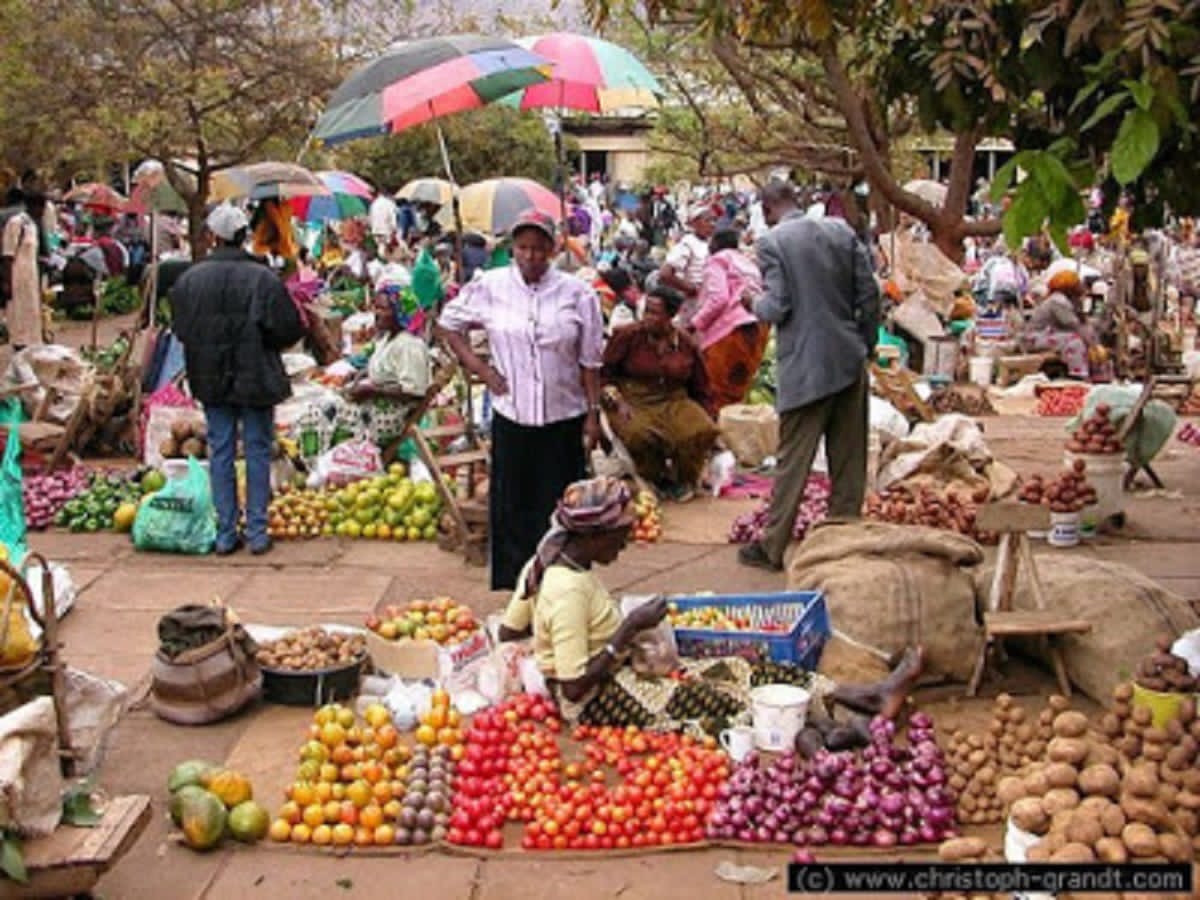The removal of petroleum subsidy and the floating of the national currency since May 2023 are having a heavy toll on Nigeria’s economy with inflation and unemployment as casualties.
At inauguration as President of Nigeria on May 29, 2023, Mr Bola Tinubu, stopped subsidy on petroleum products, especially petrol, which he considered corrupt and draining the revenue accruing to the nation. This has caused a sharp increase in prices of products, particularly foodstuffs.
He also frowned at the regulated foreign exchange rate which was considered to have hamper the appropriate rate of the currency, Naira in the foreign exchange market.
The floating of the Naira also caused a sharp devaluation of the currency by almost 200 percent, a situation that is also having a toll on cost of production aside the negative effects of fuel subsidy removal.
The National Bureau of Statistics (NBS) says Nigeria’s headline inflation rate increased to 28.92 per cent in December 2023.
In its Consumer Price Index (CPI) and Inflation Report for December, which was released in Abuja on Jan. 15, 2024, the figure is 0.72 percent points higher compared to the 28.20 per cent recorded in November 2023.
It said on a year-on-year basis, the headline inflation rate in December was 7.58 per cent higher than the rate recorded in November 2022 at 21.34 per cent.
The report said the increase in the headline index for December 2023 on a year-on-year basis and month-on-month basis was attributed to the increase in some items in the basket of goods and services at the divisional level.
It said these increases were observed in food and non-alcoholic beverages, housing, water, electricity, gas, and other fuel, clothing and footwear, and transport.
Others were furnishings, household equipment and maintenance, education, health, miscellaneous goods and services, restaurants and hotels, alcoholic beverage, tobacco and kola, recreation and culture, and communication.
In addition, the report said, on a month-on-month basis, the headline inflation rate in December 2023 was 2.29 per cent, which was 0.20 per cent higher than the rate recorded in November 2023 at 2.09 per cent.
” This means that in December 2023, the rate of increase in the average price level is more than the rate of increase in the average price level in November 2023.”
It said the percentage change in the average CPI for the 12 months ending December 2023 over the average of the CPI for the previous corresponding 12-month period was 24.66 per cent.
“This indicates a 5.81 per cent increase compared to 18.85 per cent recorded in December 2022.”
The report said the food inflation rate in December increased to 33.93 per cent on a year-on-year basis, which was 10.18 per cent higher compared to the rate recorded in December 2022 at 23.75 per cent.
“The rise in food inflation on a year-on-year basis is caused by increases in prices of bread and cereals, oil and fat, potatoes, yam and other tubers, fish, meat, fruit, milk, cheese, and egg. ”
It said on a month-on-month basis, the food inflation rate in December was 2.72 per cent, which was a 0.30 per cent increase compared to the rate recorded in November 2023 at 2.42 per cent.
“The rise in food inflation on a month-on-month basis was caused by an increase in the average prices of oil and fat, meat, bread and cereals, potatoes, yam and other tubers, fish and milk, cheese, and egg.”
The report said that “All items less farm produce and energy’’ or core inflation, which excludes the prices of volatile agricultural produce and energy, stood at 23.06 per cent in December on a year-on-year basis.
“This increased by 4.85 per cent compared to 18.21 per cent recorded in December 2022.’’
“The exclusion of the PMS is due to the deregulation of the commodity by removal of subsidy.”
It said the highest increases were recorded in prices of passenger transport by road, medical services, actual and imputed rentals for housing, passenger transport by air, pharmaceutical products, accommodation service, etc.
The NBS said on a month-on-month basis, the core inflation rate was 1.82 per cent in December 2023.
“This indicates a 0.29 per cent rise compared to what was recorded in November 2023 at 1.53 per cent.”
“The average 12-month annual inflation rate was 20.76 per cent for the 12 months ending December 2023, this was 4.74 per cent points higher than the 16.02 per cent recorded in December 2022.”
The report said on a year-on-year basis in December, the urban inflation rate was 31.00 per cent, which was 8.98 per cent higher compared to the 22.01 per cent recorded in December 2022.
“On a month-on-month basis, the urban inflation rate was 2.42 per cent in December representing a 0.19 per cent increase compared to November 2023 at 2.23 per cent.”
The report said on a year-on-year basis in December, the rural inflation rate was 27.10 per cent, which was 6.38 per cent higher compared to the 20.72 per cent recorded in December 2022.
“On a month-on-month basis, the rural inflation rate was 2.17 per cent, which increased by 0.18 per cent compared to November 2023 at 1.99 per cent.’’
On states’ profile analysis, the report showed in December, all items inflation rate on a year-on-year basis was highest in Kogi at 35.58 per cent, followed by Lagos at 32.33 per cent, and Rivers at 32.16 per cent.
It, however, said the slowest rise in headline inflation on a year-on-year basis was recorded in Borno at 23.27 per cent, followed by Taraba at 24.92 per cent, and Katsina at 26.52 per cent.
The report, however, said in December 2023, all items inflation rate on a month-on-month basis was highest in Bayelsa at 3.66 per cent, followed by Bauchi at 3.51 per cent, and Oyo at 3.45 per cent.
“Nasarawa at 1.36 per cent, followed by Delta at 1.49 per cent and Sokoto at 1.58 per cent recorded the slowest rise in month-on-month inflation.”
The report said on a year-on-year basis, food inflation was highest in Kogi at 44.73 per cent, followed by Kwara at 41.33 per cent, and Imo at 39.54 per cent.
“Bauchi at 27.49 per cent, followed by Jigawa at 27.98 per cent and Sokoto at 28.72 per cent recorded the slowest rise in food inflation on a year-on-year basis.’’
The report, however, said on a month-on-month basis, food inflation was highest in Bayelsa at 4.42 per cent, followed by Ogun at 4.11 per cent, and Enugu at 4.03 per cent.
“While Nasarawa at 1.48 per cent, followed by Delta at 1.65 per cent and Niger at 1.67 per cent, recorded the slowest rise in inflation on a month-on-month basis.”
NBS had also reported that unemployment rate rose to 4.2 per cent in the second quarter of 2023.
The bureau said this in its Nigeria Labour Force Survey (NLFS) report for second quarter of 2023, the rate is an increase of 0.1 per cent from the figure recorded in Q1 2023 (4.1 per cent).
“The unemployment rate in Q2 2023 was 4.2 per cent, this is an increase of 0.1 per cent from the figure recorded in Q1 2023 (4.1 per cent),” the NBS said.
A breakdown of the report showed that the labour force participation rate among the working-age population remained high at 80.4 per cent in Q2 2023.
It said the employment-to-population ratio was 77.1 per cent in Q2 2023.
“The combined rate of unemployment and time-related underemployment as a share of the labour force population (LU2) was 15.5 per cent in Q2 2023,” it said.
The report explained that most workers (around 88.0 per cent) were in self-employment in Q2 2023.
It added that the proportion of workers in Wage Employment in Q2 2023 was 12 per cent.
“The rate of unemployment among persons with post-secondary education was 8 per cent in Q2 2023. The Unemployment rate among youth aged (15-24 years) in Q2 2023 was 7.2 per cent having been at 6.9 per cent in Q1 2023,” the NBS said.
According to the bureau, the unemployment rate in urban areas was 5.9 per cent in Q2 2023, an increase from 5.4 per cent in Q1 2023.
It further explained that time-related underemployment in Q2 2023 was 11.8 per cent.
It noted that 4.8 per cent of the working-age population were in subsistence agriculture.
“Informal employment rate in Q2 2023 was 92.7 per cent. Percentage of youth Not in Employment, Education nor Training (NEET Rate) was 13.8 per cent,” it said.
President Tinubu had, however, acknowledge the dire situation but counselled that the fiscal and economic reforms were in the interest of the people whom he said would soon smile.




























